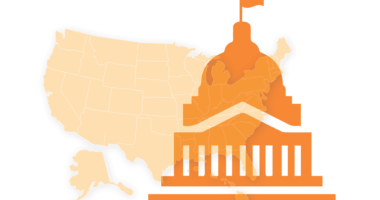Ross Wiener, policy director of The Education Trust, on the report by National Conference of State Legislatures
The National Conference of State Legislatures’ Task Force on No Child Left Behind (NCLB) emerged today to urge an enormous step backwards in the nations efforts to close achievement gaps in public education. While the report pays lip-service to the goal of closing achievement gaps, it fails to even acknowledge the deep-seated inequities in the public school systems for which these state legislators are responsible.
The historical record is too strong and the stakes are too high to turn back the clock on NCLB. The law is not perfect, and it inevitably will be modified when it is reauthorized by Congress in 2007. In the meantime, state systems of public education need to change much more than NCLB needs to change.
Rather than talk candidly about the challenges to equity in public education, NCSL defends state systems that for too long have neglected the needs of students, particularly children of color and those from low-income families. The task force report shamelessly argues that states were doing a fine job educating children before NCLB was enacted. But the evidence says otherwise.
The gaps that separate poor and minority children from their peers actually widened in the 1990s, showing that state accountability systems adopted during this decade weren’t sufficient to close gaps across the country. In fact, many states did not even report data on achievement gaps, and most state systems did not focus on closing these gaps. As a result, by 2003, roughly six in 10 African American and Latino fourth-graders could not read at even the basic level on the National Assessment of Educational Progress. Nationally, African American and Latino 17-year-olds read and do math at roughly the same level as White 13-year-olds.
These children and this nation cannot afford further delay. To confront these large and growing achievement gaps, NCLB calls on policymakers and educators to significantly change their practices from distributing teachers more fairly to ensuring that all children have access to a rigorous curriculum. We know these changes must happen to close gaps.
We must tackle these issues head-on, with an accountability system that holds systems of public education responsible for educating all students. Legislators need to turn their time, energy and resources to help schools do this important work, rather than try to dismantle the best tool the nation has to help these students.



